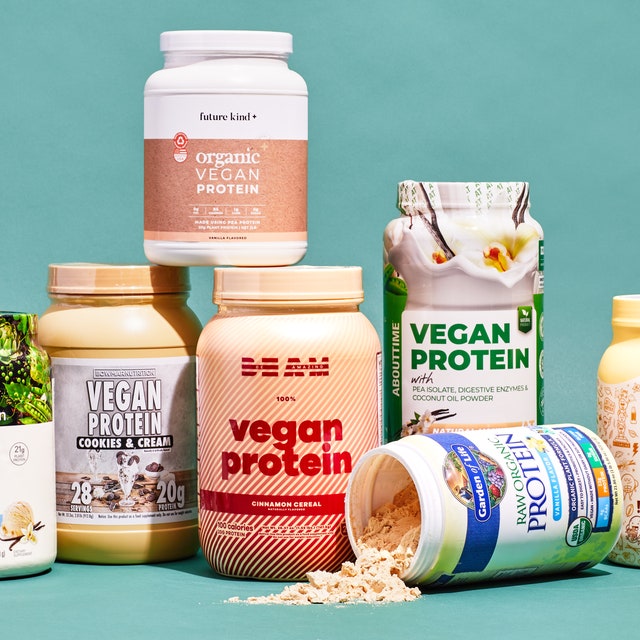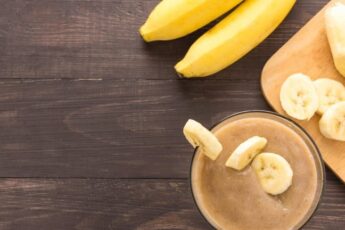Plant-based and vegan protein powders have become a popular supplement choice for those looking to increase their protein intake while following a plant-based or vegan diet. Whether you’re an athlete, fitness enthusiast, or someone simply looking to meet your daily protein needs, these protein powders offer a convenient way to ensure your body gets adequate nutrition. This guide will help you choose the best plant-based protein powders and provide tips on how to incorporate them into your diet with recipes and expert advice from dietitians.
Why Choose Plant-Based Protein Powders?
Plant-based protein powders are derived from sources such as peas, rice, hemp, soy, and seeds. They are ideal for individuals with dietary restrictions, including vegans, vegetarians, and those with lactose intolerance. These powders are free of animal products and can be easier on digestion compared to dairy-based protein powders like whey or casein.
Additionally, plant-based protein powders often contain a wide range of nutrients, including fiber, vitamins, and minerals. They can help support muscle recovery, energy production, and overall well-being without the ethical concerns tied to animal-derived products.
The Best Plant-Based Protein Powders
Here’s a rundown of some of the top-rated plant-based protein powders, taking into account factors like ingredient quality, flavor, and protein content:
- Orgain Organic Protein Powder
Protein Source: Pea protein, brown rice protein, chia seeds
Protein per Serving: 21 grams
Why It’s Great: Orgain is a popular option for those seeking an all-organic, non-GMO protein powder. It’s also free from artificial sweeteners and gluten. Many users report that it has a smooth texture and is easy to mix into smoothies or other recipes. - Garden of Life Raw Organic Protein
Protein Source: Pea protein, sprouted grains, and seeds
Protein per Serving: 22 grams
Why It’s Great: This powder boasts a blend of plant proteins, probiotics, and digestive enzymes, making it great for gut health. Garden of Life is USDA-certified organic and is also a great source of naturally occurring BCAAs (branched-chain amino acids) to support muscle growth and recovery. - Vega Sport Premium Protein
Protein Source: Pea protein, pumpkin seed protein, sunflower seed, and alfalfa protein
Protein per Serving: 30 grams
Why It’s Great: Vega Sport is formulated for athletes or those engaging in high-intensity exercise. It contains all essential amino acids, plus tart cherry and turmeric for inflammation support post-workout. This powder is NSF Certified for Sport, ensuring its purity for athletes. - KOS Organic Plant Protein
Protein Source: Pea, flax seed, quinoa, pumpkin seed, and chia seed
Protein per Serving: 20 grams
Why It’s Great: KOS protein powder offers a blend of proteins that come from superfoods. It’s low in sugar and has added digestive enzymes to support nutrient absorption. Its rich chocolate or vanilla flavors make it a versatile choice for shakes or recipes. - Sunwarrior Warrior Blend
Protein Source: Pea protein, hemp seed, and goji berry
Protein per Serving: 19 grams
Why It’s Great: Sunwarrior’s Warrior Blend is ideal for those looking for a simple, clean option that’s low in carbohydrates. It contains all essential amino acids and is free from soy, gluten, and artificial ingredients.
Tips from Dietitians: How to Incorporate Vegan Protein Powders
According to dietitians, plant-based protein powders are a fantastic way to meet your daily protein needs, especially if you have specific dietary preferences. Here’s some expert advice on how to get the most out of your vegan protein powder:
Balance Your Macronutrients: While protein powders are great, don’t forget to pair them with healthy fats and carbohydrates. For example, add your protein powder to a smoothie with nut butter and fruit for a well-rounded meal or snack.
Choose Complete Proteins: Some plant proteins are incomplete, meaning they lack one or more essential amino acids. Look for powders that combine various protein sources (such as pea and rice protein) to ensure you’re getting all the essential amino acids.
Beware of Additives: Watch out for protein powders that contain artificial sweeteners, colors, or fillers. Opt for those that have clean ingredient lists with organic, non-GMO certifications when possible.
Timing is Key: Dietitians often recommend consuming protein after a workout to support muscle repair. You can also take protein in the morning for a high-energy breakfast or as a midday snack to keep you full and focused.
Delicious Plant-Based Protein Powder Recipes
Incorporating protein powders into your diet doesn’t have to be boring. Here are some easy and delicious ways to use your plant-based protein powder:
- Protein-Packed Smoothie
1 scoop plant-based protein powder (flavor of your choice)
1 banana
1 cup almond milk (or plant milk of your choice)
1 tablespoon peanut butter or almond butter
1 handful of spinach
Blend all ingredients until smooth. This is a great option for breakfast or a post-workout snack. - Vegan Protein Pancakes
1 scoop vanilla protein powder
1 cup oat flour (or whole wheat flour)
1 tablespoon ground flaxseed mixed with 3 tablespoons of water (vegan egg substitute)
1 teaspoon baking powder
1 cup almond milk
Mix all ingredients and cook on a greased skillet over medium heat. Serve with fresh fruit and maple syrup. - Chocolate Protein Energy Balls
1 scoop chocolate protein powder
1 cup oats
¼ cup almond butter
2 tablespoons maple syrup
2 tablespoons chia seeds
Mix all ingredients and roll into bite-sized balls. Refrigerate for 30 minutes and enjoy as a snack or quick energy boost.
Conclusion
Plant-based and vegan protein powders are a versatile, nutritious option for anyone looking to increase their protein intake, particularly those following a plant-based diet. With so many high-quality options available, you can easily find a powder that meets your dietary needs and taste preferences. Remember to consult with a dietitian if you have specific health goals or concerns, and always choose protein powders that align with your nutritional values. Whether you’re making smoothies, pancakes, or energy balls, plant-based protein can fit seamlessly into your daily routine.






